I'm facing a scenario while adding data into a collection. I need to add some data into a collection and then convert into json in a required format.
The problem is i'm not getting my required json output, only dictionary collection giving me my required output but dictionary doesn't allow duplicate keys in it, and i need to add duplicate data.
I've tried different collection but unable to get required out put.
Please look at the following code snippets and suggest me a proper solution.
//with distinct emails
var dict = new Dictionary<string, object>();
dict.Add("user1@company.com", new { id = 1, first = "FirstName", last = "LastName" });
dict.Add("user2@company.com", new { id = 2, first = "FirstName", last = "LastName" });
dict.Add("user3@company.com", new { id = 3, first = "FirstName", last = "LastName" });
dict.Add("user4@company.com", new { id = 4, first = "FirstName", last = "LastName" });
string dictJson = new JavaScriptSerializer().Serialize(dict);
//json result (requires output)
//{"user1@company.com":{"id":1,"first":"FirstName","last":"LastName"},"user2@company.com":{"id":2,"first":"FirstName","last":"LastName"},"user3@company.com":{"id":3,"first":"FirstName","last":"LastName"},"user4@company.com":{"id":4,"first":"FirstName","last":"LastName"}}
//Snippet - I: with duplicate emails
var list = new List<KeyValuePair<string, object>>();
list.Add(new KeyValuePair<string, object>("user1@company.com", new { id = 1, first = "FirstName", last = "LastName" }));
list.Add(new KeyValuePair<string, object>("user1@company.com", new { id = 2, first = "FirstName", last = "LastName" }));
list.Add(new KeyValuePair<string, object>("user2@company.com", new { id = 3, first = "FirstName", last = "LastName" }));
list.Add(new KeyValuePair<string, object>("user2@company.com", new { id = 4, first = "FirstName", last = "LastName" }));
string listJson = new JavaScriptSerializer().Serialize(list);
//json result
//[{"Key":"user1@company.com","Value":{"id":1,"first":"FirstName","last":"LastName"}},{"Key":"user1@company.com","Value":{"id":2,"first":"FirstName","last":"LastName"}},{"Key":"user2@company.com","Value":{"id":3,"first":"FirstName","last":"LastName"}},{"Key":"user2@company.com","Value":{"id":4,"first":"FirstName","last":"LastName"}}]
//Snippet - II: with duplicate emails
var tupleList = new List<Tuple<string, CustomClass>>();
tupleList.Add(Tuple.Create("user1@company.com", new CustomClass { id = 1, first = "FirstName", last = "LastName" }));
tupleList.Add(Tuple.Create("user1@company.com", new CustomClass { id = 2, first = "FirstName", last = "LastName" }));
tupleList.Add(Tuple.Create("user2@company.com", new CustomClass { id = 3, first = "FirstName", last = "LastName" }));
tupleList.Add(Tuple.Create("user2@company.com", new CustomClass { id = 4, first = "FirstName", last = "LastName" }));
string tupleListJson = new JavaScriptSerializer().Serialize(tupleList);
//json result
//[{"Item1":"user1@company.com","Item2":{"id":1,"first":"FirstName","last":"LastName"}},{"Item1":"user1@company.com","Item2":{"id":2,"first":"FirstName","last":"LastName"}},{"Item1":"user2@company.com","Item2":{"id":3,"first":"FirstName","last":"LastName"}},{"Item1":"user2@company.com","Item2":{"id":4,"first":"FirstName","last":"LastName"}}]
//Snippet - III: with duplicate emails
var genericList = new List<MainClass>();
genericList.Add(new MainClass { email = "user1@company.com", details = new CustomClass { id = 1, first = "FirstName", last = "LastName" } });
genericList.Add(new MainClass { email = "user1@company.com", details = new CustomClass { id = 2, first = "FirstName", last = "LastName" } });
genericList.Add(new MainClass { email = "user2@company.com", details = new CustomClass { id = 3, first = "FirstName", last = "LastName" } });
genericList.Add(new MainClass { email = "user2@company.com", details = new CustomClass { id = 4, first = "FirstName", last = "LastName" } });
string genericListJson = new JavaScriptSerializer().Serialize(genericList);
//json result
//[{"email":"user1@company.com","details":{"id":1,"first":"FirstName","last":"LastName"}},{"email":"user1@company.com","details":{"id":2,"first":"FirstName","last":"LastName"}},{"email":"user2@company.com","details":{"id":3,"first":"FirstName","last":"LastName"}},{"email":"user2@company.com","details":{"id":4,"first":"FirstName","last":"LastName"}}]
I dont want key name in json result. I just need email as key and object as its value. Like this
{"user1@company.com":{"id":1,"first":"FirstName","last":"LastName"}}
